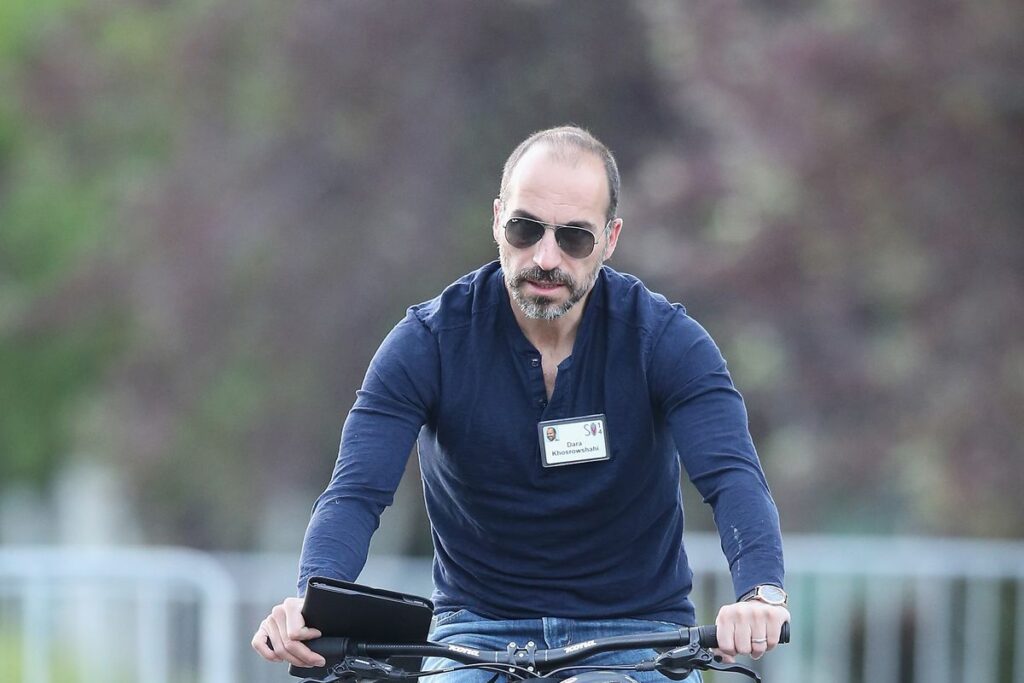Uber’s search for the next CEO has finally seen a conclusion.
After a long run-in with troubled top executives and leadership, Uber is finally looking to set its house in order. As per the New York Times and Recode reports, the ride-hailing company’s board of directors has picked Dara Khosrowshahi as the next CEO. The appointment will finally fill up the top spot left vacant after the sudden departure of Travis Kalanick in June. The board had reportedly narrowed down its choices to Khosrowshahi and Meg Whitman, CEO at Hewlett Packard Enterprise, and chose the former, who has been the CEO at Expedia since 2005.
Khosrowshahi tryst with CEO-ship started when Expedia spun away from the IAC conglomerate in 2005. He has been steering the travel-bookings-based website since, taking it from a $15 billion venture to a $72 billion international brand. What works in favor of Khosrowshahi as his work profile as Uber’s CEO is that he is no stranger to the challenges of the transportation industry. Expedia collaborates with car rental services and transportation companies worldwide to help its customers commute between destinations during their travels. It is basically a macroscopic version of Uber’s business plan.
Curiously, neither Uber nor Khosrowshahi have made any announcement in this regard. According to Recode, Khosrowshahi is yet to formally accept his new assignment and, it is possible, that the company is waiting for just that to happen before making an official announcement. The company’s board of directors was considering several industry heavyweights to fill the CEO’s boots but Khosrowshahi’s name was kept under wraps until the meeting on the matter concluded on Sunday night.
It is interesting to note that the recently departed CEO Travis Kalanick has remained the face of the company through much turbulence and scandals that continued to tarnish its image. He said to have held on to the CEO’s chair despite Uber’s image crumbling like a house of cards on his watch only on account of being the company’s biggest shareholder. However, his handling of the situation amidst protest against Donald Trump’s diktat to ban refugees from seven Muslim-majority countries was seen as the final straw that did him in. The New York Taxi Workers alliance had called for the suspension of cab services at NYC’s John F. Kennedy International airport as an expression of solidarity. However, Uber, under Kalanick’s leadership, continued operations. A move that made it look insensitive to a burning issue and cost it dearly as nearly 200,000 users worldwide deleted the app in an expression of their resentment. Even before the dust could settle on the matter, Susan Fowler, a former engineer at Uber, published a shocking account of sexual harassment and sexism prevalent in the company. More women then corroborated her claims. These developments led to key investors mounting pressure on the company to let go off Kalanick, and his consequent ouster in June.
In contrast, Khosrowshahi, who hails from Iran, extended his support to a lawsuit against the travel ban and stuck his neck out to call a spade, a spade. He even used his position as CEO to take a dig at Trump’s defeatist policy decision, concluding the following quarterly earnings call on the note, “Hopefully we will all be alive to see the end of next year.” His commitment to the cause wasn’t restricted to mere lip service. He was quick to commit $3 million to accord legal defenses to drivers affected by the ban.
The board of directors, as well as the team of employees, must now have their hoped pinned on Khosrowshahi to step in and give the company the face lift it needs.




